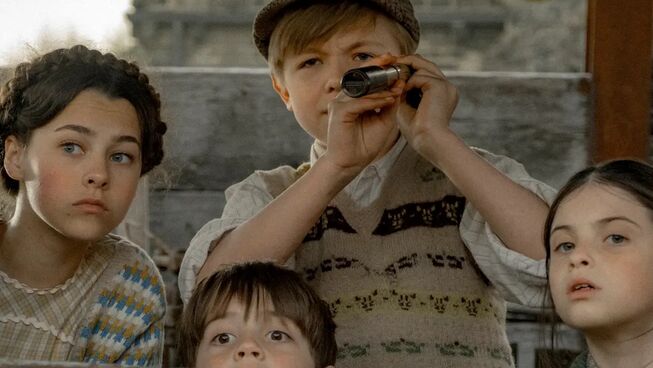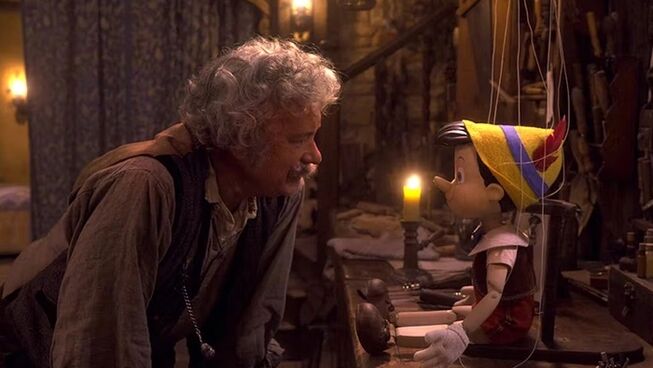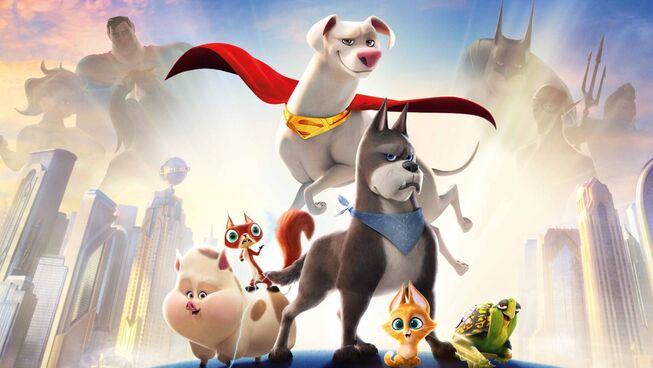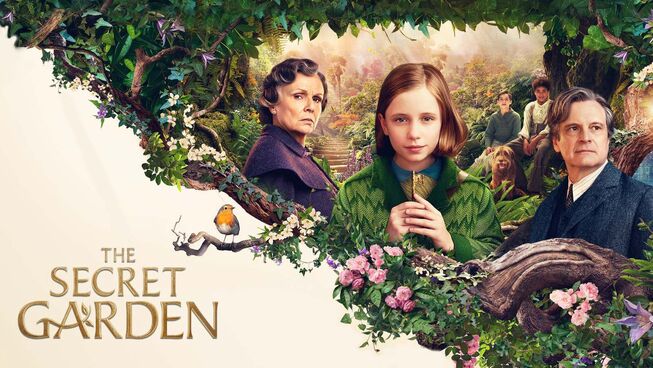
2 out of 5 stars
 The Railway Children Return may qualify as being the longest sequel to arrive since the original release. It was 1970 when the first film was released and there might be few people who would remember the first instalment of this franchise 50 years later. As a throwback to the World War II era that saw English children sent to the country for their safety as the war effort continued, audiences are taken back for a new look back at the era.
The Railway Children Return may qualify as being the longest sequel to arrive since the original release. It was 1970 when the first film was released and there might be few people who would remember the first instalment of this franchise 50 years later. As a throwback to the World War II era that saw English children sent to the country for their safety as the war effort continued, audiences are taken back for a new look back at the era.
As bombings occurred across the cities of England, the Watts siblings were sent from their home in Manchester to the village of Oakworth in the West Riding of Yorkshire. Lily (Beau Gadsdo) is the eldest child, and she must do all she can to keep her family together while they are away from their mother. Upon arrival in the quaint township, they are finally taken in by the local schoolmistress, her mother, and son, Thomas (Austin Haynes). Annie (Sheridan Smith) and her family do not have much to offer the Watts children except food and care while they wait for the war's end.
While the children adapt to country living, they explore the local train yard with Thomas. In amongst the old carriages and workshops, the four discover Abraham "Abe" McCarthy (KJ Aikens), who is hiding. The young American soldier has deserted his post and is trying to make his way back to the United States. The children come to realise that the African-American private is trying to escape the brutal treatment of the military police and motivates the kids to help him escape.
Fans of E. Nesbit’s original works may not recognize this children’s literary classic. Even though the setting may be familiar and young people are involved, the rest of her tale has been hijacked by modern themes and agendas. Initially, the film had a look and feel of the time it was meant to represent with its beautiful depiction of the British countryside and lifestyle. Then documentary director Morgan Matthews decided to overlay the issues of the plight of American racism and the disdain for law enforcement onto the film. This treatment of the original material eventually becomes quite heavy-handed and unnecessary within this style of literature.
Initially, the message of the journey had admirable intentions and direction. Still, the children were encouraged to lie and rebel against all authority. Unfortunately, there is a line within these films that either teaches a moral lesson or pushes the viewer to consider that the only path is found in deception. The Railway Children Return had the potential to be placed as a wonderful option for families this season, especially with so few choices available. Yet, all this film manages to do is encourage children to deceive their parents, disrespect law enforcement, and to equate the military police to the Nazi regime. All issues worth discussing, but it is out of place in this narrative. What an unfortunate use of a classic children’s story and missed opportunity when the world needs more family-friendly content.

Reel Marriage
Lights, Camera... Movies and Marriage!
Marriage is one of life’s greatest blessings, yet it faces countless challenges in today’s world. How can we strengthen our commitment and help others see its value? The Bible offers wisdom, but what if movies could serve as a bridge to deeper conversations about love, faith, and commitment?
Reel Marriage explores how film and Scripture can illuminate the beauty of marriage, providing fresh insights into God’s design for love and relationships. From classic romances to modern dramas, movies capture couples' struggles and triumphs, mirroring biblical truths in powerful ways.
Faith and film unite. Are you ready to see marriage in a whole new light?
If you order your copy today you will also receive a complementary handbook that is only available with the purchase of the book (Print or ebook)
REEL DIALOGUE: Christianity, racism and discrimination
The Railway Children Return does a poor job of addressing topics that have been a part of the world’s social conscience since the beginning of mankind. Yet, racism is something worth confronting and discouraging at all costs. Racial hatred and discrimination relate to something more profound than mere social injustices. These two issues are a deeply embedded insult to God and offence to the entirety of humanity.
For students of the Bible, it is not difficult to see that racism runs counter to the message that can be read throughout its pages. The hatred depicted in this film and actions taken by many worldwide is not a representation of Christianity or Jesus’ message. He died on the cross to redeem men and women of every race, colour, and ethnic background. The Saviour of the world lives today to show the eternal value of all people, regardless of nationality, race, development, appearance, or ability. His followers must embrace this aspect of the Bible’s message and live accordingly, while sharing this truth with the world without prejudice.
Stop judging by mere appearances, but instead judge correctly. John 7:24
There is neither Jew nor Greek, there is neither slave nor free, there is no male and female, for you are all one in Christ Jesus. Galatians 3:28






